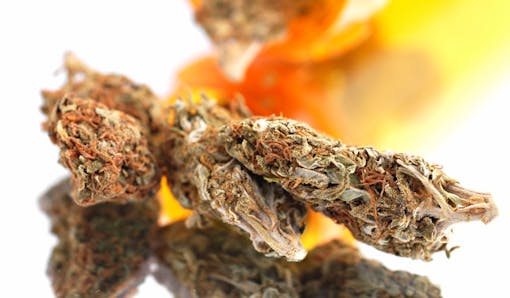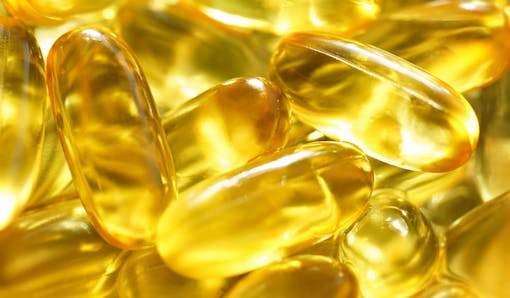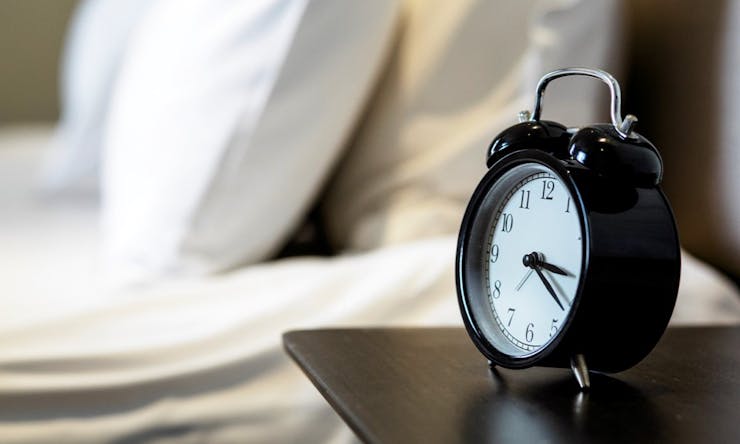There’s a reason more insomnia sufferers are turning to cannabis. You toss and turn, count sheep, and negotiate (“If I can fall asleep by 3 a.m., I’ll at least get four hours of sleep”). Ten minutes becomes a half hour. A half hour becomes an hour. Before you know it, the sun is coming up. Insomnia is its own unique agony, but now that the stigma of cannabis is slowly lifting, more people are seeking out its therapeutic sedating properties.
Acute insomnia — which usually only lasts a night or two — happens to nearly all of us. It’s usually triggered by a stressful external event. But, chronic insomnia — regularly having three or more restless nights per week over the course of the month — affects a billion people worldwide.
Interestingly, insomnia affects women at twice the rate as men. And, it doesn’t get better with age. Half of all seniors are regularly affected by insomnia. Beyond feeling sleepy and irritable the next day, chronic insomnia is associated with some serious long-term health issues: cardiovascular disease, diabetes, and obesity.
So what causes insomnia, what are the traditional treatment options, and in what ways might cannabis be a healthier, viable alternative?
Causes of Insomnia

Insomniacs can have either primary or secondary insomnia.
- Primary insomnia is a standalone condition — it wasn’t caused by another health condition.
- Secondary insomnia is associated with a secondary health condition or substance (for example, depression, pain, alcohol, or a prescription medication).
The number one cause of insomnia is stress. While we can’t control every stressful external factor in our lives, there are healthy ways to deal with the stress. Dr. Rachna Patel, a physician from Walnut Creek, California, who has personally dealt with years of insomnia, notes, “Anything you can do to reduce stress will also help you sleep better. Get out for a jog. Swim. Eat better. Do relaxation exercises or meditate. Even if you still need a sleep aid like cannabis, lifestyle changes will improve your overall health!”
Shop highly rated dispensaries near you
Showing you dispensaries nearTraditional Treatment Options for Insomnia

Dr. Patel suggests, “Before trying medication, consider making lifestyle changes including setting a regular sleep schedule, getting more exercise, [and] eating healthier.” Nonetheless, Patel has observed that “some patients have so much difficulty sleeping that they just need a medication to help them.”
Prescription medications such as Zolpidem (Ambien) and Zaleplon (Sonata) have grown in popularity over the years, but they may not be that effective. One study by the National Institutes of Health found that sleeping pills, on average, only add 11 minutes of sleep time and shorten the time it takes to fall asleep by a mere 13 minutes.
Worse, they can come with serious adverse side effects and health consequences. According to the Department of Health and Human Services, over the last two decades there’s been a dramatic increase in prescription sleep aid-related emergency room visits.
Likewise, benzodiazepines such as Xanax and Valium, which are approved for sleep, are highly addictive and potentially dangerous. According to the Centers for Disease Control and Prevention (CDC), in 2013 benzos were involved in 30% of lethal drug overdoses, second only to opioids.
Some also claim that natural supplements, such as melatonin, valerian root, lemon balm, or chamomile are helpful in falling asleep.
Can Cannabis Treat Insomnia?

Dr. Patel turned to cannabis after being prescribed Ambien. Afraid of the potential side effects, she found research validates what cannabis users have long suspected: cannabis helps people sleep.
Strangely, the National Institute on Drug Abuse (NIDA), National Institutes of Health (NIH), and Big Pharma’s Sanofi-Aventis may agree. They funded a study that showed consuming THC enabled subjects to fall asleep easier and more quickly.
Here’s more of the evidence:
- Easier time falling asleep. As far back as 1973, research has documented subjects falling asleep quicker after ingesting THC. More recently, a 2013 study of healthy subjects validated earlier findings.
- Sleep longer and better. Early studies have demonstrated the efficacy of cannabinoids in aiding sleep. One study of THC found that subjects experienced fewer interruptions over the night and some decrease in awakenings during the first half of the night.
- Enjoy deeper sleep. Cannabis can positively impact the sleep cycle. Studies prove THC can increase deep sleep. Why is this important? Because scientists believe deep sleep plays a vital role in our body’s natural restoration process.
- Better breathing while sleeping. Roughly 17% of men and 9% of women regularly have breathing problems when they sleep – a condition called sleep apnea – and most are never diagnosed. However, early research published in January 2013 by Frontiers in Psychology shows cannabis may help people breathe easier when they sleep. Who knows? Maybe someday sleep apnea sufferers can swap out their CPAP mask for a THC-infused brownie (but don’t count on Medicare to cover the cost yet).
How Does Cannabidiol (CBD) Affect Sleep?

Evidence of cannabidiol, or CBD, as a sleep aid has been contradictory. In one study, CBD – which is non-intoxicating – seemed to be effective as a “wake-inducing agent,” meaning it can make you feel more alert, the opposite effect of what an insomniac wants.
However, others who participated in the study reported that ingesting CBD-rich extracts or tinctures a few hours prior to bed had a relaxing effect that allowed them to sleep better at night. According to Project CBD, some patients with sleep issues report that “ingesting a CBD-rich tincture or extract a few hours before bedtime has a balancing effect that facilitates a good night’s sleep.”
The key is finding the right strain, blend, product, and dose for you. Everyone’s body responds to cannabis differently, so it may take a little trial-and-error before finding the perfect fit. Try a heavy indica or an edible. Consider something with a little CBD. See what happens when you dose a little instead of a lot. You might be surprised to find that your ultimate sleep remedy isn’t what you thought it would be.









